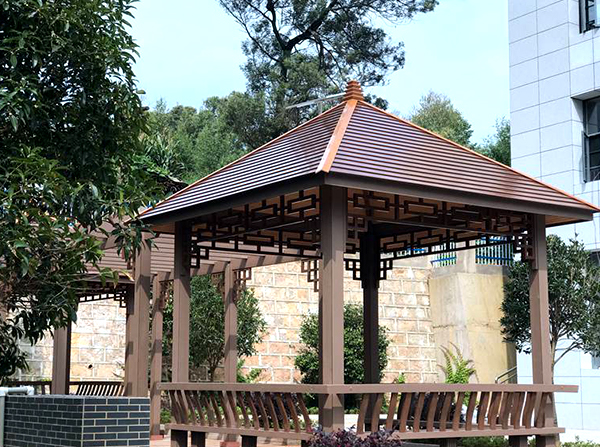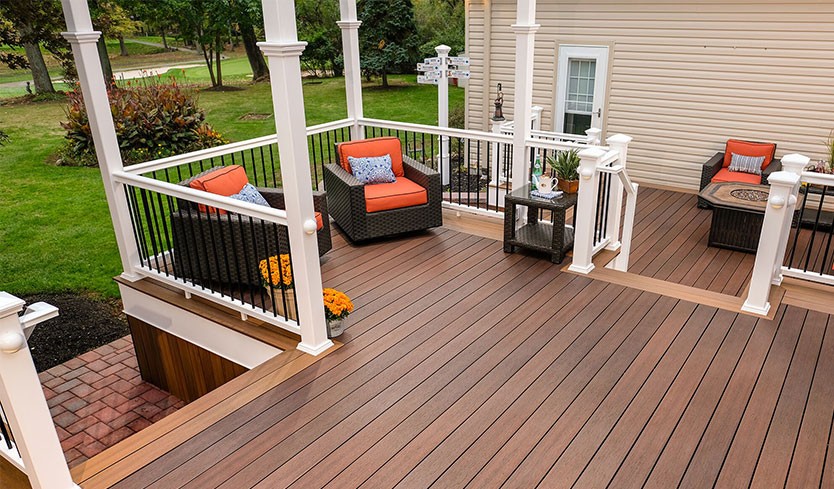The composite decking market Kenya is on the rise, driven by a blend of urbanization, a growing construction industry, and increasing awareness of sustainable building materials. Composite decking, made from a combination of wood fibers and recycled plastic, offers durability, low maintenance, and resistance to elements, making it an attractive option for both residential and commercial projects. This report provides an in-depth look at the current state of the composite decking market in Kenya, key drivers, challenges, and future prospects.
Table of Contents
Composite Decking Market Kenya: Overview of the Composite Decking Market in Kenya
The composite decking market in Kenya has been gaining traction over the past few years. As urban areas expand and the middle class grows, the demand for residential and commercial outdoor spaces is increasing. This trend is particularly pronounced in major cities like Nairobi and Mombasa, where new housing developments are on the rise .
Market Size and Growth Rate:
According to various market research reports, the composite decking market in Kenya is projected to grow at a compound annual growth rate (CAGR) of approximately 6-8% over the next five years . This growth can be attributed to the rising popularity of outdoor living spaces and the increasing use of composite materials in construction.
Types of Composite Decking:
The market includes various types of composite decking, such as hollow and solid boards. Solid composite boards are denser and generally more durable, while hollow boards are lighter and often more cost-effective . Manufacturers are also offering products with enhanced features such as slip resistance and UV protection.
Composite Decking Market Kenya: Key Drivers of Growth Sustainability and Environmental Concerns:
Kenya is witnessing a shift towards environmentally friendly building materials, driven by both consumer preferences and government policies aimed at promoting sustainability . Composite decking, made from recycled materials, aligns with these initiatives, making it an appealing option for eco-conscious consumers.
Construction Boom:
The construction industry in Kenya is experiencing a boom, fueled by urbanization and infrastructural development projects. This growth creates a favorable environment for composite decking products, which are increasingly being used in residential, commercial, and recreational applications .
Low Maintenance Requirements:
One of the key selling points of composite decking is its low maintenance needs compared to traditional wood. Homeowners and businesses alike are looking for durable and long-lasting solutions that do not require frequent painting or sealing .
Aesthetic Appeal:
The versatility in design and color options available with composite decking products allows homeowners to create aesthetically pleasing outdoor spaces. This is particularly appealing in the Kenyan market, where outdoor aesthetics are important for both residential and commercial properties .

Composite Decking Market Kenya: Challenges Facing the Market High Initial Costs:
While composite decking can save money in the long run due to reduced maintenance and replacement costs, the initial investment is often higher than traditional wood. This can be a barrier for many consumers, particularly in a price-sensitive market like Kenya .
Limited Awareness:
Despite its benefits, there is still limited awareness among consumers about composite decking. Many homeowners and contractors are more familiar with traditional materials and may be hesitant to switch to newer alternatives .
Competition from Imported Products:
The Kenyan market is also faced with competition from imported composite decking products. Imported brands may offer lower prices or established reputations, which can challenge local manufacturers .
Quality Control:
As the market grows, maintaining consistent quality in locally produced composite decking can be a challenge. Consumers expect high standards, and any issues with quality can lead to negative perceptions of the product category .
Composite Decking Market Kenya: Key Players in the Market
Several manufacturers are active in the Kenyan composite decking market, including both local and international brands. Key players include:
Local Manufacturers:
Local companies are increasingly investing in the production of composite decking to meet the growing demand. They focus on sustainable practices and cater to local tastes and preferences.
International Brands:
Global brands, such as Trex and Fiberon, are also entering the Kenyan market, bringing established product lines and extensive marketing resources . These brands often emphasize the quality and durability of their products.
Emerging Brands:
There are also several emerging brands that specialize in eco-friendly and sustainable building materials. These brands often focus on innovative designs and offer a range of options to meet diverse customer needs .

Composite Decking Market Kenya: Future Prospects
Market Growth:
The composite decking market in Kenya is expected to continue its growth trajectory as awareness increases and the demand for sustainable building materials rises. With the government promoting eco-friendly initiatives, manufacturers will likely benefit from supportive policies .
Technological Innovations:
Advances in manufacturing technology are likely to improve the quality and performance of composite decking products. Innovations such as enhanced weather resistance and improved aesthetics will drive consumer interest .
Increased Availability:
As more manufacturers enter the market, consumers will have greater access to a variety of composite decking options. This increased competition is likely to lead to better pricing and options for consumers .
Sustainability Focus:
With a growing focus on sustainability in construction practices, composite decking will likely play a key role in the future of building materials in Kenya. This aligns with global trends toward greener building practices and will be an essential aspect of market growth .
The composite decking market in Kenya is positioned for growth, driven by urbanization, sustainability, and technological advancements. While challenges remain, such as high initial costs and limited awareness, the benefits of composite decking—durability, low maintenance, and eco-friendliness—make it an attractive choice for both consumers and builders.
As the market evolves, it is crucial for stakeholders to focus on education and awareness to help consumers understand the advantages of composite decking. With continued investment in quality and innovation, the future looks promising for composite decking in Kenya.
For further insights, industry professionals and consumers can explore detailed reports and analyses from market research firms that specialize in the building materials sector .








